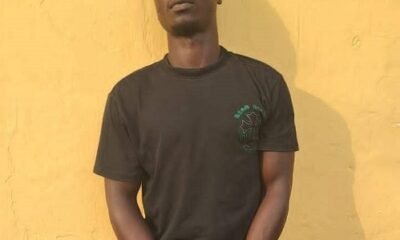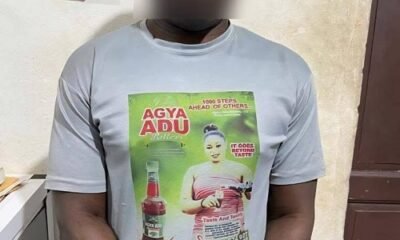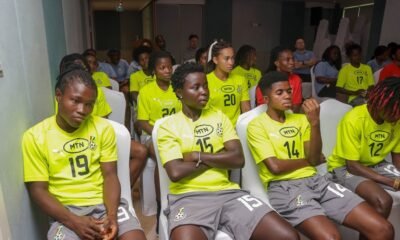News
Know sickle cell status before marriage

Marriage decisions can be the key to reducing Ghana’s alarming sickle cell disease rates, according to Professor Alex Osei Akoto, Principal Investigator of the Patient-centred Approaches to Care and Treatment of Sickle Cell Disease (PACTS) in sub-Saharan Africa.
He has, therefore, urged the youth to strive to know their sickle cell status before getting married, given the fact that 2 per cent of all newborns in Ghana are diagnosed with sickle cell disease.
“When two individuals with the sickle cell trait (AS) marry, they face a 25 per cent chance of having a child with the full disease (SS) with each pregnancy. When people are aware of their status, they can make informed decisions about their partners. This isn’t about restricting people’s choices but empowering them with knowledge that can affect generations to come,” Prof. Akoto explained.
He spoke to The Spectator during a stakeholder meeting to discuss a study conducted across six hospitals in the Kumasi metropolitan area on how best to treat and manage the disease.
Prof. Akoto noted that people in sub-Saharan Africa were the largest carriers of the disease as “the gene emanates from black Africa.”
But early detection, he stressed, was key for interventions and reiterated the call for all to know their status.
Prof. Akoto urged clinicians to stick to protocols in the treatment of the disease, stressing the importance “to adhere strictly to established guidelines to ensure optimal care for sickle cell patients.”
The study conducted at Komfo Anokye Teaching Hospital (KATH), KNUST, Manhyia, Asokwa, Kumasi South, and Kumasi Metro Hospitals, found that some clinicians were not following standard care protocol.
Dr Lawrence Osei-Tutu, a pediatrician and specialist in sickle cell treatment associated with the project, highlighted their innovative approach.
“We are using a unique approach of harnessing the involvement of both patients, families, community, and clinicians to look at how best to treat and manage the disease,” said Dr Osei-Tutu.
He further indicated that one of the most promising developments during the study involved pharmaceutical adaptations for younger patients/children.
Dr Osei-Tutu also emphasised that the interventions depended critically on early detection. Without timely diagnosis, even the most innovative treatments lose much of their efficacy.
“We’re trying to improve the lives of patients by improving what we do at the hospitals. This improvement extends beyond medical procedures to encompass family support systems, community awareness, and patient education,” explained Dr Osei-Tutu.
The project recently brought together key stakeholders from across the healthcare spectrum to deliberate on optimising treatment protocols.
This collaborative approach represents a shift in how genetic diseases are managed in Ghana, moving from a purely medical model to a more integrated social-medical framework.
Despite these promising developments, significant challenges remain in Ghana’s fight against sickle cell disease.
Limited resources, geographical barriers to healthcare access, stigmatisation, and low awareness continue to hamper efforts to reduce the disease burden.
As Ghana continues to address the high prevalence of sickle cell disease, experts emphasised that knowledge remains the most powerful tool in this fight.
From Kingsley E. Hope, Kumasi
News
Man sentenced to 25 years for robbery at Manso Akwasiso

A 30-year-old man has been sentenced to 25 years imprisonment with hard labour by the Bekwai Circuit Court for his role in a 2022 robbery at a mining site at Manso Akwasiso in the Ashanti South Region.
The convict, Dominic Ofori, also known as Fanta, was arrested on 16th February 2026 after years on the run. He pleaded guilty before the Bekwai Circuit Court to robbery contrary to Section 149 of the Criminal Offences Act, 1960 Act 29, and was accordingly sentenced to 25 years imprisonment with hard labour.
On March 20, 2022, the Manso Adubia District Police received intelligence that a group of armed men from Manso Abodom were planning to attack a mining site at Manso Akwasiso to rob the owner of gold concentrate. Acting on the information, police mounted a coordinated operation and laid an ambush at the site.
At about 5:30 pm the same day, four-armed men arrived at the site, fired indiscriminately, and robbed the miners of their gold concentrate. The police team on surveillance intervened, resulting in an exchange of gunfire.
Three of the suspects, Abu Abubakar, Musah Latif, and Gideon Takyi, sustained gunshot wounds and were pronounced dead on arrival at St Martins Catholic Hospital at Agroyesum. Dominic Ofori escaped at the time but was later arrested and put before the court.
The Ashanti South Regional Police Command has assured the public of its continued commitment to combating violent crimes and bringing offenders to justice.
News
Ashanti police arrest man for publishing false news on TikTok

The Ashanti Regional Police Command has arrested 45-year-old Isaac Boafo, also known as “Duabo King,” for allegedly publishing false news intended to cause fear and panic.
Police said the arrest follows a viral TikTok video in which Boafo claimed that four officers at the Central Police Station in Kumasi engaged in inappropriate conduct with commercial sex workers during night patrols in Asafo.
Officers from the Police Intelligence Directorate (Ashanti Region) apprehended Boafo after receiving intelligence about the video.
During questioning, he admitted to creating the video to attract views and engagement online, and acknowledged that he could not prove the allegations.
Boafo also admitted making comments about the President of the Republic for content purposes and could not defend those statements.
He has been formally charged and is in detention as investigations continue.
The Ashanti Regional Police have warned the public against publishing or sharing false information on social media, noting that such acts can cause fear, panic, and damage reputations.
They said anyone found engaging in similar conduct will face legal action.
By: Jacob Aggrey














